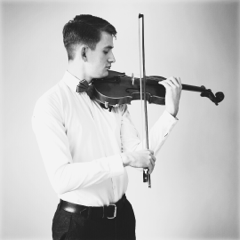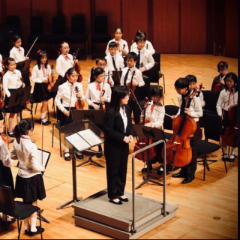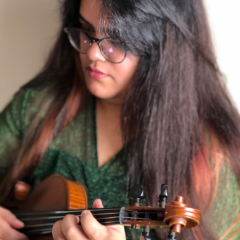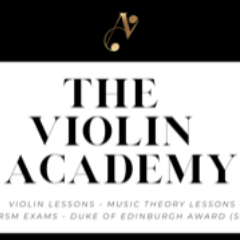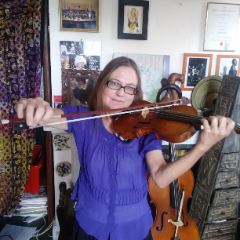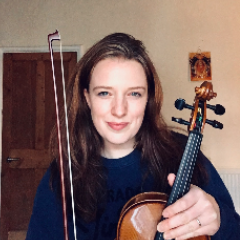DBS Certificate Provided
Teaching
more
Types
Location
Special Services
more
Can tutor in
more
Experience
Gender & Photo
Sort by
List View
Map View
Full View
Hi! I’m a very enthusiastic tutor with previous school and private experience back in my home town. I am now studying theology and religion at Liverpool hope (ranked 3rd in www.*** for this respective subject) and have completed advanced grades in music.
Online Violin Tutors

V
I am a professional musician and teacher with more of 30 years of experience. Have been working with the leading orchestras around the World as a soloist and musician. Have experience as a Teacher/Associate Prof in UK and abroad.
Hi there! I'm Valentine, a passionate violinist and violin teacher. I'd love to help you progress and have fun with your instrument!
Teaching violin for over 20 years. Working for the Hong Kong Children’s Strings for 18 years as the violin instructor.

E
I am a professional violinist and a Candidate for a PhD in Music at the University of Cambridge. As a Supervisor in the Faculty of Music, I teach undergraduate music students.
Violin and Music Theory teacher in Birmingham, UK.
Please send any inquiries through on WhatsApp or text using my phone number as I am unable to reply on here.
tel: *** 0
Violin teacher in Doncaster, UK.
I have had my violin teaching business for over eight years. I work with both children and adults alike teaching online & face to face, from beginners up to grade 8 with the ABRSM. All my students enjoy learning with me in a friendly and happy environment.
I have played as a professional violinist in the London Symphony Orchestra, the BBC www.*** the Royal Philharmonic orchestra and others. I have been a tutor of violin for the Berkshire music service and Dauntsyes school for several years as well as having ta
Visiting violin teacher at Portsmouth University.
Visiting violin teacher at Canford School.
Violin tutor for the National Childrens Orchestra.
Adjudicator Rotary Young Musician.
Owner of Kawaigh Creative Artists and Self employed/Freelance Violinist with experience in Teaching and Computer Science/Sound Engineering.
Main instrument is violin but can also teach ukulele. I'm happy to help prepare for any GCSE or A Level exams in terms of theory and history. I can also help with performance anxiety and techniques.
Lessons will be fully tailored to the student's needs.
I am a professional Violinist with 25 years playing experience. I am an active performer as a soloist, chamber musician and orchestral musician in the UK and abroad. Teaching is a huge passion of mine and I love to work with any age and ability.
***Violin Lessons Made Easy!***
I can teach you how to play the violin from beginners up to intermediate level playing with personalised 1:1 coaching online, you will also receive audio/visual recordings to help with your practice!
Hello everyone,
My name is Maria M. and I'm a Cypriot/British violinist who has been based in Glasgow for the past 6 years.
I have invested my career in music and it is my passion to share my love of music while teaching others. I have been teaching music to a range of age demographics for the last 6 years, includes all ages from children, teens to adults.
A fully-qualified teacher of violin and viola. I trained at the Royal Welsh College of Music & Drama and gained a First Class Honours Degree. I have lots of patience and am enthusiastic and encouraging. I am keen to share my passion of music with others.

